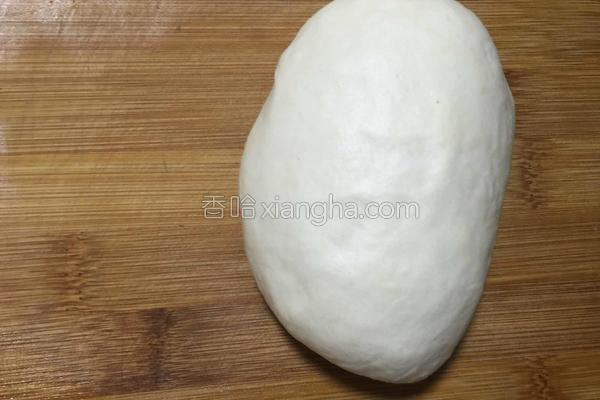- in+时间段:在…时期(范围大)
- in January在一月
- in winter在冬天
- in 1999在1999年
- in the mornig/afternon/evnig/daytime在早上
- She changed sevral jobs in her twenties and thirties.她在二三十岁时换了几份工作。
- on+某天:在…某天
- on Monday
- on Sunday afternoon
- on Christmas Day
- on July 1st, 19
- on the morning of March 7th, 1998
- at+时间点:在…时刻(范围小)
- at noon/night/midnight/sunrise/sunset
- at eight o’clock
- at his time of the year
- at the moment
- during+持续时间: 在…期间
- 例:He stayed there during the whole sumer.整个夏天他都呆在那里。
- during、in的区别:一段时间可互换,持续时间during,in+季节是泛指
- ① 相同点:均可表示“一段时间”,有时可互换。
- 例:I’ll be on holiday in/during August.我将在八月份休假。
- ② 不同点:表示行为要持续一段时间的名词之前,只能用during。
- 例:The phone rang during the meal. I went to see my aunt during my stay in Beijng.吃饭的时候电话响了。我在北京逗留期间去看了我姑姑。
- ③ 与季节名词连用时,in表泛指,during表特指。
- 例:We often go swimming in summer.我们经常在夏天去游泳。(泛指)
- 例:We went swimming during the summer.夏天我们去游泳了。(特指)
- 【练习】

- in大范围,at小地点
- in强调“空间”或“范围”,表示范围较大的地方。
- 例:When did your father arrive in China?你父亲什么时候到中国?
- at强调“点”,表示范围较小的地方;
- 例:When did your father arrive at the airport?你父亲什么时候到机场?
- in在内,on邻近,to之外
- in 表示在某范围之内;
- Taiwan lies (in)the southeast of China.台湾在中国的东南部内。
- on 表示毗邻;
- 例: Mongolia lies (on)the north of China.蒙古邻近中国的北部。
- to 指某环境范围以外。
- Japan lies (to)the east of China.日本在中国的东面外。
- with工具,by通过,in语言,on媒体
- with表示“用…工具”,后面要用冠词或物主代词。
- 例:I broke the window with a stone.我用石头打破了窗户。
- by表示“用…方法、手段(有时也可与through互换)”。
- 例:She goes to school by bus. I learn Japanese by/through watching video.她乘公共汽车上学。我通过看视频学日语。
- in表示“用…语言、材料、颜色”等。
- 例:This book is writen in Rusian.
- on表示“通过…媒介、方式”,多用于固定词组。
- 例:His model deeds have been publicized on TV.
- 【练习】

- of+外材,from+内材,in+用料
- 1. of 表示制成品可以看得出原材料
- 例:The table is made of iron.这张桌子是铁做的。
- 2. from 用于不能从制成品中看出原材料时
- 例:Paper is made from wood.纸是由木头制成的。
- 3. in 用于某种材料前,常与 write/ speak/answer 等连用
- 例:He always writes letters in ink.他总是用墨水写信。
- except除同类(句中),except for除瑕疵(句首)
- (1)except后排除的内容与主语同类,即从整体中去掉与其它部分不相同的部分。该部分包含在主语当中。
- 例:All the buildings are excellnt except this one.除了这座,所有的建筑都很好。
- (2)except for后所排除的内容与主语不是同类,表示从一个整体中除去一些瑕疵。
- 例:All the buildngs are excellent except for their location.除了位置外,所有的建筑都很棒。
- (3)在句首时往用excpt for
- 例:There was no single person in the dark street that night except a policeman on his duty. 没有一个人在黑暗的街道,晚上除了一个警察在他的责任。
- 例:Except for a policeman on his duty, there was no single person in the dark street that night.那天晚上,除了一个值班的警察外,漆黑的街上一个人也没有。
- across表面,through内部
- acros指从表面穿过
- 例:Be cautious when you get across the street.过马路时要小心。
- through指从内部穿过
- The light passes through the glass.光穿过玻璃。
- 肯定可互换,until句首
- (1)肯定句中,一般情况下可以互换。
- 例:They worked till/until six o’clock.他们一直工作到六点钟。
- (2)until可用于句首,till通常不用于句首。
- 例:Until you told me, I had heard nothing about him.在你告诉我前,我对他一无所知。
- 放句首要倒装,强调+it is…that…
- (3)常见词组:not until,表达方式与till含义有别。
- 例:I will be here till he comes back. I won't leave her until he comes back.我将在这里直到他回来。直到他回来我才会离开她。
- (4)not until 状语在句首,句子要倒装。
- 例:Not until nine o'clock yesterday evening didwe finish the work.直到昨天晚上九点钟我们才完成工作。
- (5)not until 强调句:It is/was not until…that…
- 例:It was not until Mike told me tha I had clear idea of the whole thing. =I din’t have a clear idea of the whole thing until Mike told me.
- 【练习】

- 内部穿

- 直到…才

- 强调句






